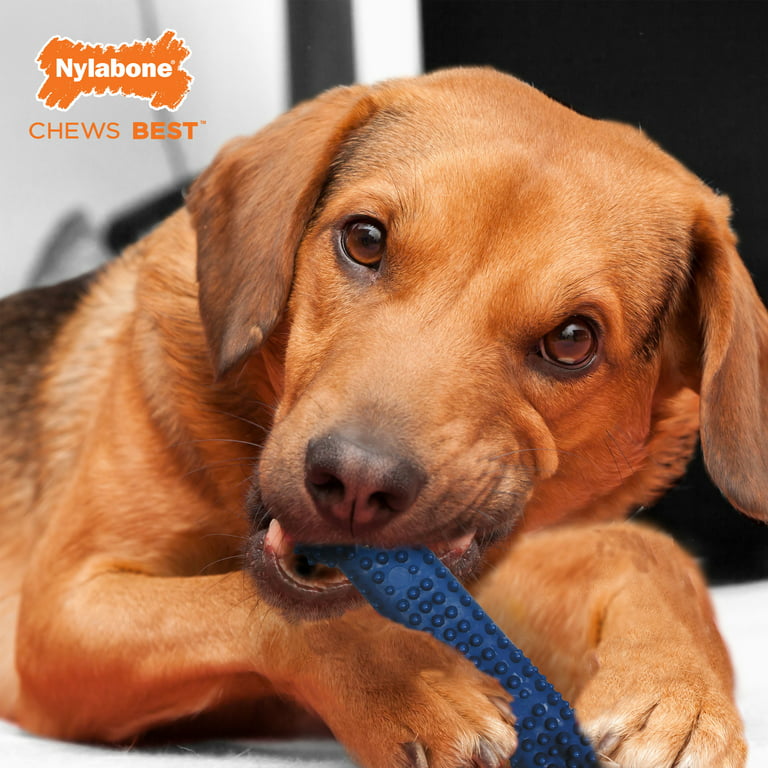Dogs are more than just pets, they are a beloved member of the family. As pet owners, it is our responsibility to ensure their overall health and well-being, including their dental health. Just like humans, dogs can also suffer from dental problems such as plaque, tartar, and gum disease. These issues can lead to serious health problems and even affect their quality of life. Therefore, maintaining your dog's dental health should be a top priority.
In this article, we will discuss 5 important steps on how you can maintain your dog's dental health. From regular brushing to proper diet, these steps will help keep your furry friend's teeth clean and healthy. So let's dive in and learn how to give your dog the best oral care possible.
1. Brushing Your Dog's Teeth

One of the best ways to maintain your dog's dental health is by regularly brushing their teeth. Just like humans, dogs need their teeth brushed to remove plaque and prevent tartar buildup. However, unlike us, dogs can't do it themselves, so it's up to us as responsible pet owners to take care of their teeth for them.
How to Brush Your Dog's Teeth
Brushing your dog's teeth may seem like a daunting task, but with patience and practice, it can become a part of your routine. Here's a step-by-step guide on how to properly brush your dog's teeth:
- Choose the right toothbrush: You can use a soft-bristled toothbrush or a finger brush specifically made for dogs. Avoid using human toothpaste as they contain ingredients that can be harmful to dogs.
- Introduce the toothbrush to your dog: Before you start brushing, let your dog sniff and lick the toothbrush to get familiar with it.
- Gradually introduce toothpaste: Start by letting your dog taste the toothpaste on your finger. Once they are comfortable, put a small amount of toothpaste on the brush and let them lick it off.
- Start brushing: Lift your dog's lips and gently brush their teeth using circular motions. Focus on the back molars as these are the areas most prone to plaque buildup.
- Be patient: Don't force your dog if they struggle or resist at first. Take breaks in between and reward them with treats and praise for good behavior.
- Make it a habit: You should aim to brush your dog's teeth at least 2-3 times a week. This will help maintain their dental health and make the process easier in the long run.
Benefits of Regular Brushing
Regularly brushing your dog's teeth can provide numerous benefits, including:
- Prevention of plaque and tartar buildup
- Fresh breath
- Reduction of potential health issues such as gum disease and tooth loss
- Stronger and healthier teeth
2. Choose the Right Diet

Just like humans, a dog's diet can also affect their dental health. Feeding your dog a well-balanced, high-quality diet can have a positive impact on their teeth and overall health. On the other hand, a poor diet can lead to a variety of dental problems.
What to Include in Your Dog's Diet
A dog's diet should consist of high-quality protein, carbohydrates, fats, vitamins, and minerals. Here are some foods that can promote good dental health in dogs:
- Raw bones: Chewing on raw bones can help remove plaque and tartar buildup while providing essential nutrients for your dog's teeth.
- Hard kibble: Dry dog food can also help scrape off plaque from your dog's teeth as they chew.
- Carrots and apples: These crunchy fruits and vegetables act as natural toothbrushes for your dog's teeth and can help keep them clean.
What to Avoid in Your Dog's Diet
Just like certain foods can promote good dental health, some may have a negative impact on your dog's teeth. Avoid feeding them:
- Sugary treats: Sugar can lead to tooth decay and other dental problems.
- Starchy foods: Foods high in starch, such as bread and pasta, can get stuck in between your dog's teeth and contribute to plaque buildup.
- Table scraps: Human food may contain ingredients that are harmful to dogs' teeth, such as onion and garlic.
3. Provide Appropriate Dental Chews and Toys

Aside from brushing and diet, providing your dog with appropriate dental chews and toys can also help maintain their dental health. These products can help remove plaque while keeping your dog entertained at the same time.
Dental Chews
Dental chews are specifically designed to promote good dental health in dogs. They are usually made of natural ingredients and have a rough texture that helps remove plaque as your dog chews on them. Be sure to choose the right size for your dog and monitor them while they consume the chew.
Dental Toys
Interactive dental toys, such as ropes and balls, can also help keep your dog's teeth clean by scraping off plaque. Plus, playing with these toys can also improve your dog's overall oral hygiene by promoting saliva production, which helps neutralize acids in the mouth.
4. Regular Dental Check-ups
Regular dental check-ups are just as important for dogs as they are for humans. Your veterinarian can perform a thorough examination of your dog's teeth and gums and address any potential issues early on.
Signs that Your Dog Needs a Dental Check-up
Just like us, dogs can also experience dental problems. Here are some signs that may indicate your dog needs a dental check-up:
- Bad breath
- Difficulty eating or chewing
- Red or swollen gums
- Visible tartar or plaque buildup
- Loose or missing teeth
5. Additional Dental Treatments
In some cases, your dog may require additional dental treatments to maintain their oral health. These treatments can include professional cleaning, tooth extractions, and even surgery in severe cases. It's essential to follow your veterinarian's recommendations to prevent any serious dental problems that may affect your dog's overall health.
Professional Cleaning
Professional cleaning is a common procedure for dogs with excessive plaque and tartar buildup. Your veterinarian will perform a thorough cleaning of your dog's teeth, including scaling, polishing, and possibly, fluoride treatment.
Tooth Extractions
In some cases, a tooth may need to be extracted if it is too damaged or diseased. This can help prevent the spread of infection and alleviate your dog's pain.
Surgery
In severe cases, surgery may be necessary to address advanced dental problems such as periodontal disease. Your veterinarian will discuss the best course of action for your dog's specific case.
FAQs
What are the signs of dental problems in dogs?
Common signs of dental problems in dogs include bad breath, difficulty eating or chewing, red or swollen gums, visible tartar or plaque buildup, and loose or missing teeth.
Can I use human toothpaste to brush my dog's teeth?
No, you should never use human toothpaste on dogs as they contain ingredients that can be harmful to them.
How often should I brush my dog's teeth?
You should aim to brush your dog's teeth at least 2-3 times a week to maintain their dental health.
Are there any foods I should avoid feeding my dog for their dental health?
Avoid feeding your dog sugary treats, starchy foods, and table scraps as they can have a negative impact on their dental health.
How can I tell if my dog needs a dental check-up?
Signs that your dog needs a dental check-up include bad breath, difficulty eating or chewing, red or swollen gums, visible tartar or plaque buildup, and loose or missing teeth.
Conclusion
Taking care of your dog's dental health is crucial for their overall well-being. By following these 5 important steps - brushing their teeth regularly, providing a balanced diet, appropriate chews and toys, scheduling regular check-ups, and addressing any additional dental treatments - you can ensure that your furry friend has a healthy and happy smile. Remember to be patient and make these steps a part of your routine, and your dog will thank you with fresh breath and a bright smile.



